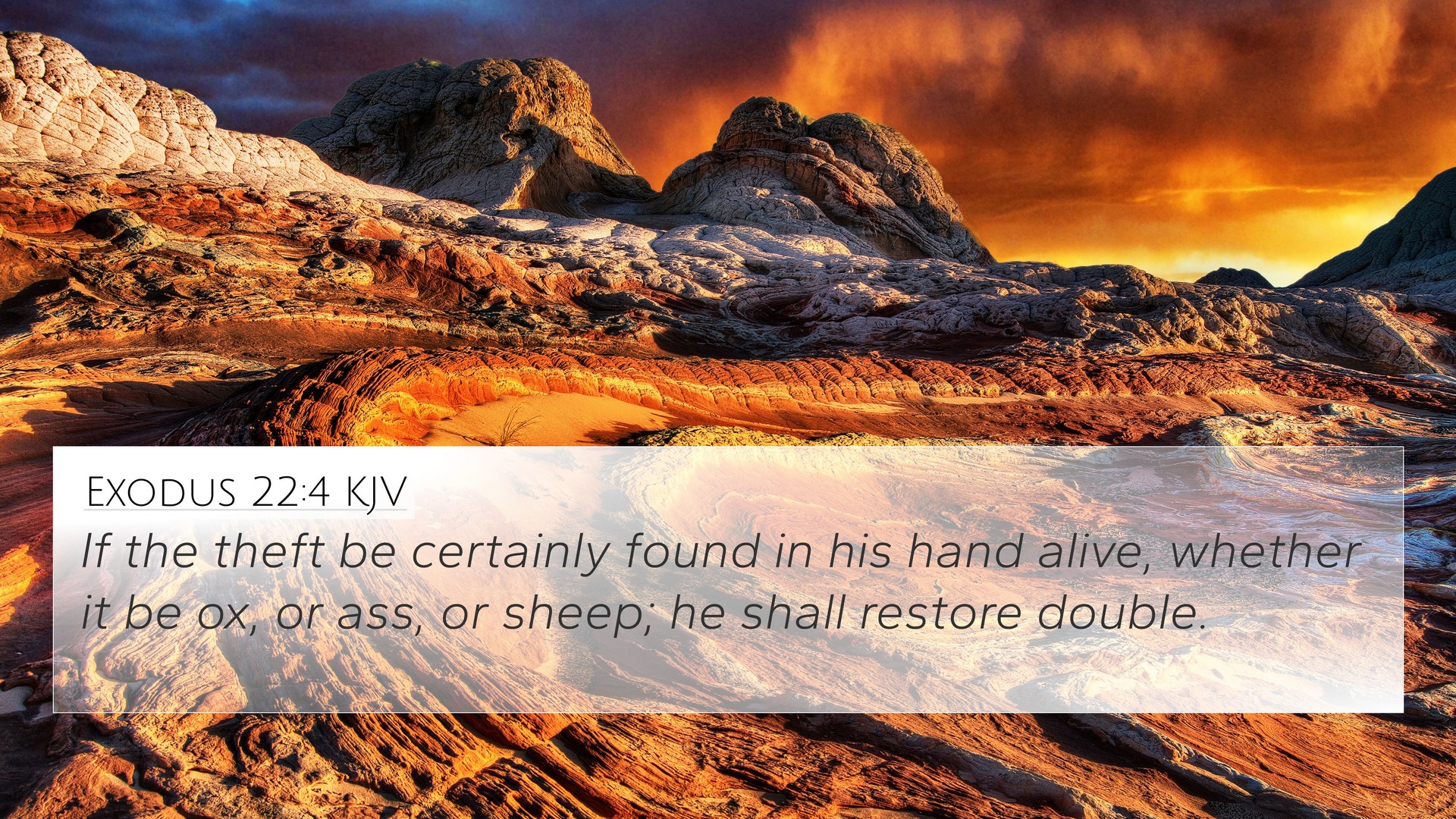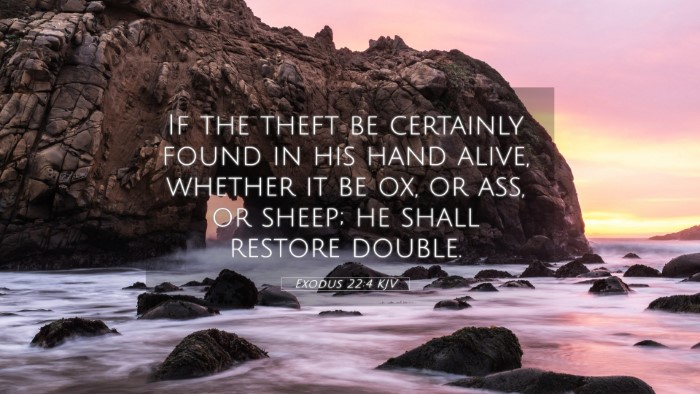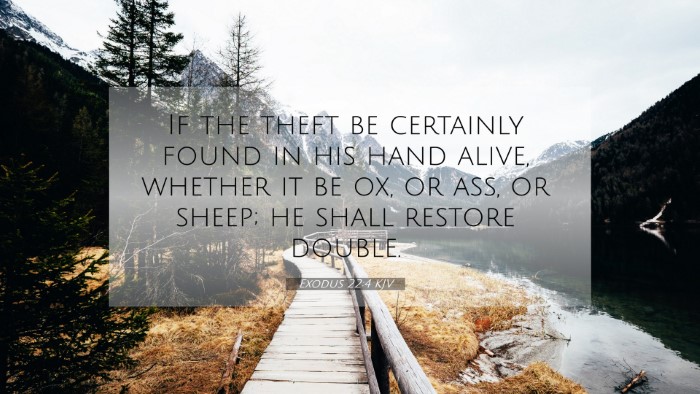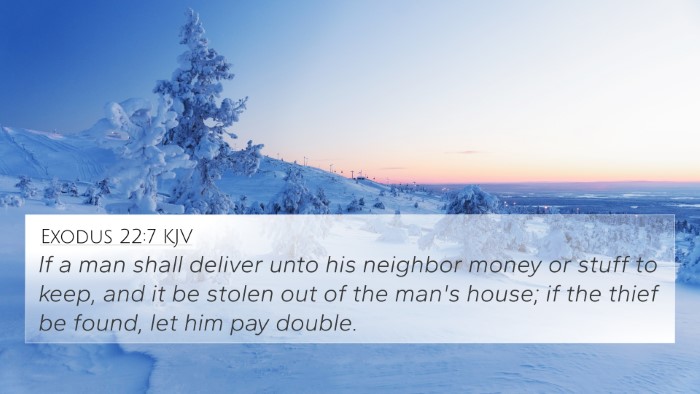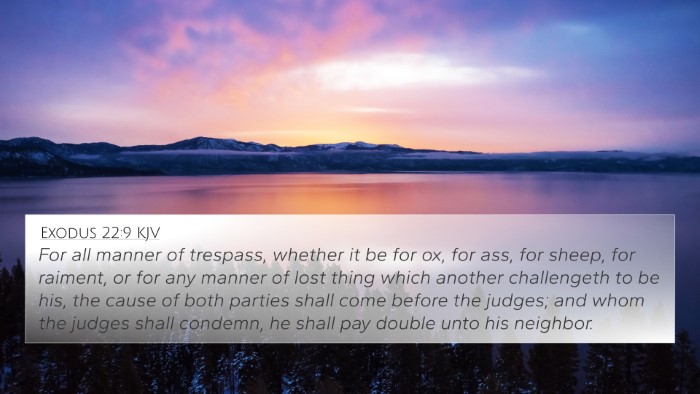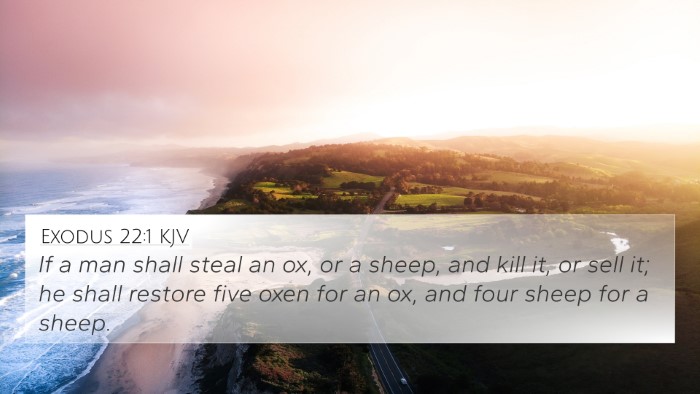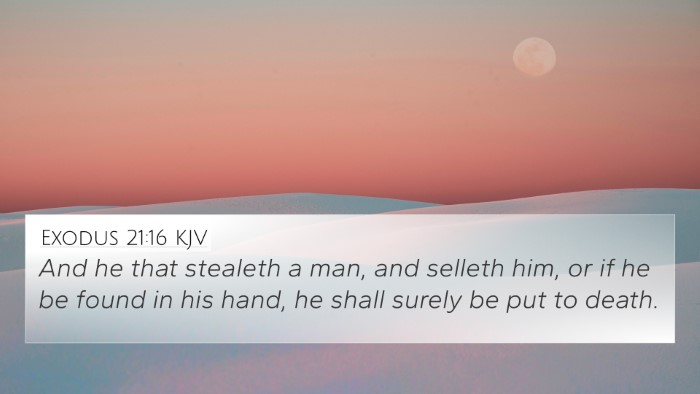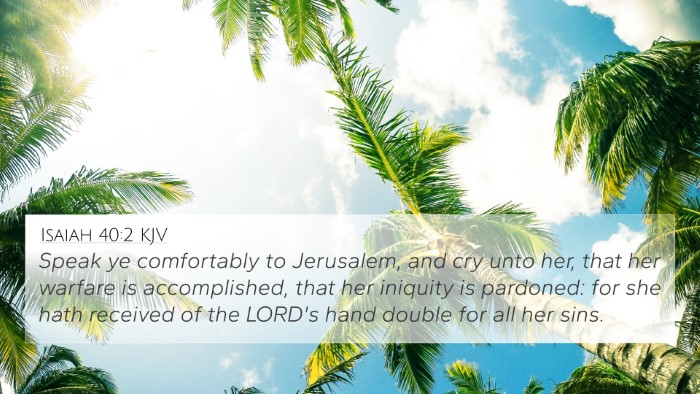Exodus 22:4 - Summary of Meaning
Exodus 22:4 states:
“If what was stolen is actually found alive in his possession, whether it be an ox or donkey or sheep, he shall pay double.” (Exodus 22:4, NKJV)
This verse is part of a larger body of law given to the Israelites, providing guidelines for restitution in cases of theft. The Biblical laws reflect God's concern for justice and restoration among His people.
Key Insights from Public Domain Commentaries
-
Matthew Henry:
Henry emphasizes the principles of reparation and restitution. The thief must return what is taken, showing that there is both a legal and moral obligation to restore what has been unjustly taken from another. The idea of 'double' implies not just a penalty but also an acknowledgment of the wrong done to the victim.
-
Albert Barnes:
Barnes notes that the law illustrates the seriousness of stealing and the expectation of returning stolen items. The specific mention of animals highlights the agricultural lifestyle of the Israelites, and returning double ensures that the thief takes on responsibility for their actions.
-
Adam Clarke:
Clarke connects this verse to the larger theme of community welfare and personal accountability. He discusses how these laws were intended to maintain social order and respect for property, which are foundational for a functioning society.
Bible Cross References
Exodus 22:4 relates to several other scriptures that further illuminate its meaning:
- Exodus 22:1: Discusses restitution for theft.
- Leviticus 6:2-5: Outlines the guilt offering for theft and the restoration process.
- Luke 19:8: The story of Zacchaeus demonstrates the principle of restitution.
- Proverbs 6:30-31: Discusses how a thief, if caught, must restore sevenfold.
- Numbers 5:7: Provides a framework for restitution to the owner when wronged.
- John 10:10: Highlights the thief's intent to steal, contrasting with Christ's purpose to give life abundantly.
- Ephesians 4:28: Encourages those who steal to work and share with those in need, promoting reparation.
Connections and Thematic Links
This verse can be connected with themes of justice, accountability, and community norms throughout the Bible:
- The principle of restitution echoes in many laws across both Testaments, emphasizing the sanctity of property and non-exploitation.
- Comparative analysis reveals how restitution laws in Exodus correlate with teachings of Jesus on honesty and integrity.
- Cross-referencing with the New Testament highlights a consistent theme of ethical conduct that extends beyond mere legal compliance.
Tools for Bible Cross-Referencing
To delve deeper into understanding Exodus 22:4 and its connections, utilizing a Bible concordance or a Bible cross-reference guide can be invaluable:
- Cross-reference Bible study tools help in identifying parallels in scripture.
- Learning how to use cross-references will aid in uncovering the intricacies of Biblical themes.
- Bible reference resources can enhance your understanding of legal and ethical dimensions in scripture.
Conclusion
Exodus 22:4 provides profound insights into God's justice and the expectation for His people to live in integrity and fairness. The interconnectedness of this verse with the overall Biblical narrative underscores the importance of restitution and accountability in human interactions.
As believers seek to understand the connections between Bible verses, engaging in comparative Bible verse analysis with tools such as a Bible cross-reference system will enrich their spiritual lives and provide a clearer picture of Biblical teachings.
In summary, Exodus 22:4 not only addresses theft and restitution but also leads us to consider our broader responsibilities to one another as members of a community grounded in God's justice.
